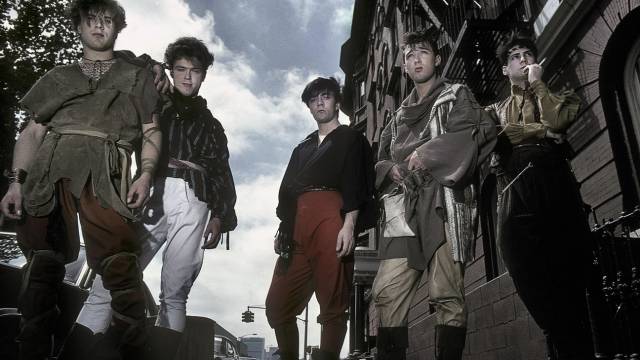
 I have no particular feelings one way or the other for the band Spandau Ballet, the subjects of the documentary Soul Boys of the Western World, which is why I was surprised by how much I enjoyed the film. Soul Boys is entertaining through its formal superiority to most music docs, despite having many of the same ingredients.
I have no particular feelings one way or the other for the band Spandau Ballet, the subjects of the documentary Soul Boys of the Western World, which is why I was surprised by how much I enjoyed the film. Soul Boys is entertaining through its formal superiority to most music docs, despite having many of the same ingredients.
As usual, there are interviews with band members combined with archival footage, but instead of having the aged visages of the band members make unnecessarily intrusions on the video track, only the audio of the interviews is used, over a rapidly-paced brew of archival footage. Not only are the interviews kept out of the visuals, instead of letting the band members tell whole stories, the director uses brief snippets in an impressionistic manner. The end result resembles hearing from the collective unconscious of the band, as different perspectives and different motives emerge in response to the same events in a relatively short amount of screen time. These bubbling undercurrents along with the quick pace and eclectic selection of the archival footage combine to give the film an irrepressible drive, especially before and during the band’s rise to popularity.
Much of the reason this formal technique works so well is the quality of the archival footage used. A comparatively small amount of the footage shows the band itself, much of it is used to show the musical, social, and political context the band emerged from. The film expertly delineates various influences on the band, including non-musical influences; such as the close-knit postwar community they emerged from, the hope engendered by space exploration, and the social unrest of the Thatcher years in Britain. These social and political factors are interwoven with the evolution of the band’s taste in music, from sixties rock, to seventies glam and later punk. The most exciting part of the film deals with their early days as club kids in London, as part of the incipient New Romantic movement. The film combines an anthropological sense of differences and distinctions with a drunken sense of the optimism and excitement felt by the members of the subculture.
As the band achieves international success, the locales become more exotic and the names become more famous, as the group jets around from London to St. Tropez and New York City and cross paths with the rich and famous, including their rivals/friends Duran Duran. The momentum of the film is in some ways dependent on the upward trajectory of the band and some of the fun wears off as the band enters its stage of decline. Soul Boys doesn’t quite manage to make the various grievances and conflicting desires that eventually sink the band seem interesting, as they’re variations on the same problems bands always have. The band broke up in the early 1990s, later in the decade entered British consciousness again as they waged a high-profile court case over royalties, and reunited twenty years later to recapture their glory days.
If the second half of the film isn’t as interesting as the first, the first half still makes it worthwhile. Soul Boys of the Western World is a testament to the invigorating effect that formal innovation can have on a familiar subject and the film should please both fans of the band and anyone curious in the colorful cultural evolution of London.